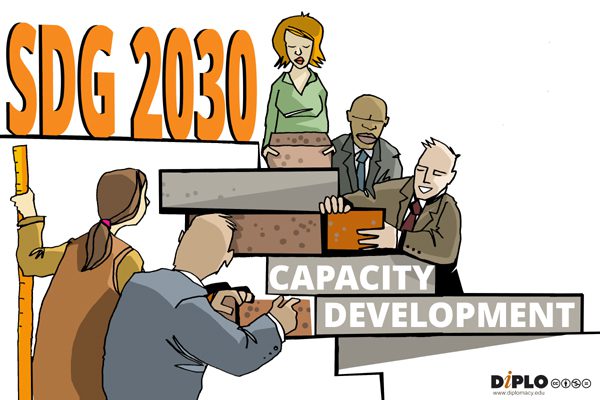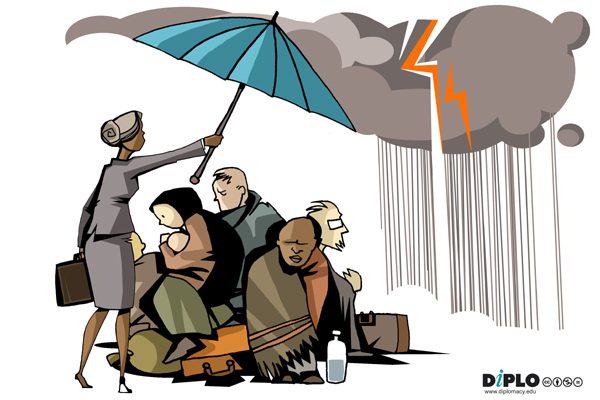
DiploNews – Issue 408 – 2 December 2020
Upcoming study opportunities
◆ Applications open! Master/Postgraduate Diploma in Contemporary Diplomacy
We are accepting applications for the 2021 online Master/Postgraduate Diploma in Contemporary Diplomacy and the Master/Postgraduate Diploma in Contemporary Diplomacy with a specialisation in Internet Governance, run in cooperation with the University of Malta Department of International Relations.
During 16 to 20 months of online study, the programmes guide working diplomats, international relations professionals, and Internet policymakers through the theoretical and practical building blocks of diplomacy, with a focus on contemporary issues and challenges.
In response to the current global pandemic, the introductory workshop – traditionally offered in Malta – will be run online in 2021, eliminating the need for travel and reducing expenses for participants.
Scholarships covering 20%–50% of the Postgraduate Diploma fee are available for applicants from small and developing states. The programme starts on 25 January 2021.
For further information and to apply, please visit the Master in Contemporary Diplomacy webpage.
◆ Capacity Development course – Apply now!

◆ Humanitarian Diplomacy Diploma course – Apply now!

◆ Apply now! February 2021 online diplomacy and digital policy courses
Start the new year with one of our most popular online courses:
- Artificial Intelligence: Technology, Governance, and Policy Frameworks
- Diplomatic Theory and Practice
- Introduction to Internet Governance
- Public Diplomacy
Courses start on 22 February 2021. Apply by 21 December 2020 for University of Malta accredited courses, and by 18 January 2021 for Diplo certificate courses. For further information or to apply, click on the titles of the courses listed, or visit our courses webpage. Register now to reserve your place.
◆ Need financial assistance? Scholarships are available.
Thanks to support from the government of Malta, partial scholarships are available for applicants from developing countries to attend upcoming Diplo online courses. These scholarships cover 30%–60% of course fees and can be applied to most online courses in 2021. Browse our course catalogue and contact us at admissions@diplomacy.edu for further information.
Sign up for our courses mailing list to stay informed about upcoming courses.
Launch of the Geneva Digital Atlas

Access the Geneva Digital Atlas here.
Upcoming events
◆ Webinar: International Water Law and Transboundary Cooperation (3 Dec.)
Approximately 280 transboundary watercourses serve almost 40% of the world’s population. Moreover, more than 500 aquifers are shared between two or more states. This webinar will examine the role of the international water law in enhancing transboundary cooperation. Register here.
◆ Panel discussion: ‘#MeetingTomorrow: Digital Geneva 2040’ (7 Dec.)
Geneva has been at the centre of the global debate on Internet governance ever since the invention of the World Wide Web at CERN in 1989.
Jointly presented by swissnex Boston and DiploFoundation, the online panel discussion #MeetingTomorrow: Digital Geneva 2040 will look at how Geneva can increase its relevance in the years to come. Register here.
Our recent events
◆ IG Briefing #70: Internet governance in November 2020
In our monthly briefing, we discussed the main Internet governance updates for November, including tackling terrorist content online, antitrust actions, facial recognition, and more. Watch the recording:

◆ Right On #14: Our Future, Our Voice – Placing children and their rights at the centre of the drive towards a better, greener world
The struggle for climate justice, and environmental protection and conservation, is a struggle for human rights. The impacts of environmental harm fall particularly hard on the youngest children, as well as on indigenous children and those from low-income and marginalised communities. In this RightOn episode, we discussed children’s rights in the context of environment, international efforts, and youth engagement. Watch the recording:

◆ Geneva Dialogue: Digital Security and Economic Recovery
In the high-level event ‘Digital Security and Economic Recovery: Boosting Confidence and Productivity through Secure Digital Technology’, speakers discussed how the fragmented regulatory environment impacts the security of digital products and services, including those in supply chains. The discussion aimed to clarify possible collaborative responses from both corporations and governments on how to facilitate financial and economic recovery through trusted digital technologies. Watch the recording.
◆ WebDebate #44: ‘Diplomacy in times of COVID-19: The experience of developing countries’
The COVID-19 pandemic demanded adaptations across the diplomatic profession. Small and developing countries faced an additional set of obstacles. In this episode we discussed how dedicated efforts are needed in order to avoid an increasingly uneven diplomatic playing field, which begins by closely listening to the experience of practitioners. Watch the recording:

Blogs and publications

The November issue of the GIP Digital Watch monthly newsletter covers top digital policy updates such as IGF 2020, digital interdependence, cybersecurity, terrorist content online, antitrust, facial recognition, and more! Get your free copy here.
◆ IGF 2020 Final Report
DiploFoundation and the GIP have reported from over 100 sessions during this year’s Internet Governance Forum. At the end of the annual meeting, we published a thematic Final Report which brings together all that was discussed. Read the IGF 2020 Final Report.
◆ Blog post: ‘Internet protocols and human rights: Interplay or interdependence?’
In his blog post, Sébastien Monnet discusses the relationship between Internet protocols and human rights. Do they reinforce each other? How have recent developments impacted this relationship? Read the blog post here.
Diplo team at external events
◆ Data 2025 Conference
The Data 2025 Conference, organised by the Graduate Institute of International and Development Studies in collaboration with C4DT (EPFL), discussed what data is. Katharina Höne (Director of Research, DiploFoundation) and Jovan Kurbalija (Head, Geneva Internet Platform) participated in session one titled ‘What is data?’ Watch the recording.
◆ AI Policy Conference
DiploFoundation was a partner in the ‘AI Policy Conference’ held 16–17 November. DiploFoundation’s Jovan Kurbalija, Katharina Höne, and Natasa Perucica participated in the panel ‘Fostering innovation and growth’. Watch the recording:



